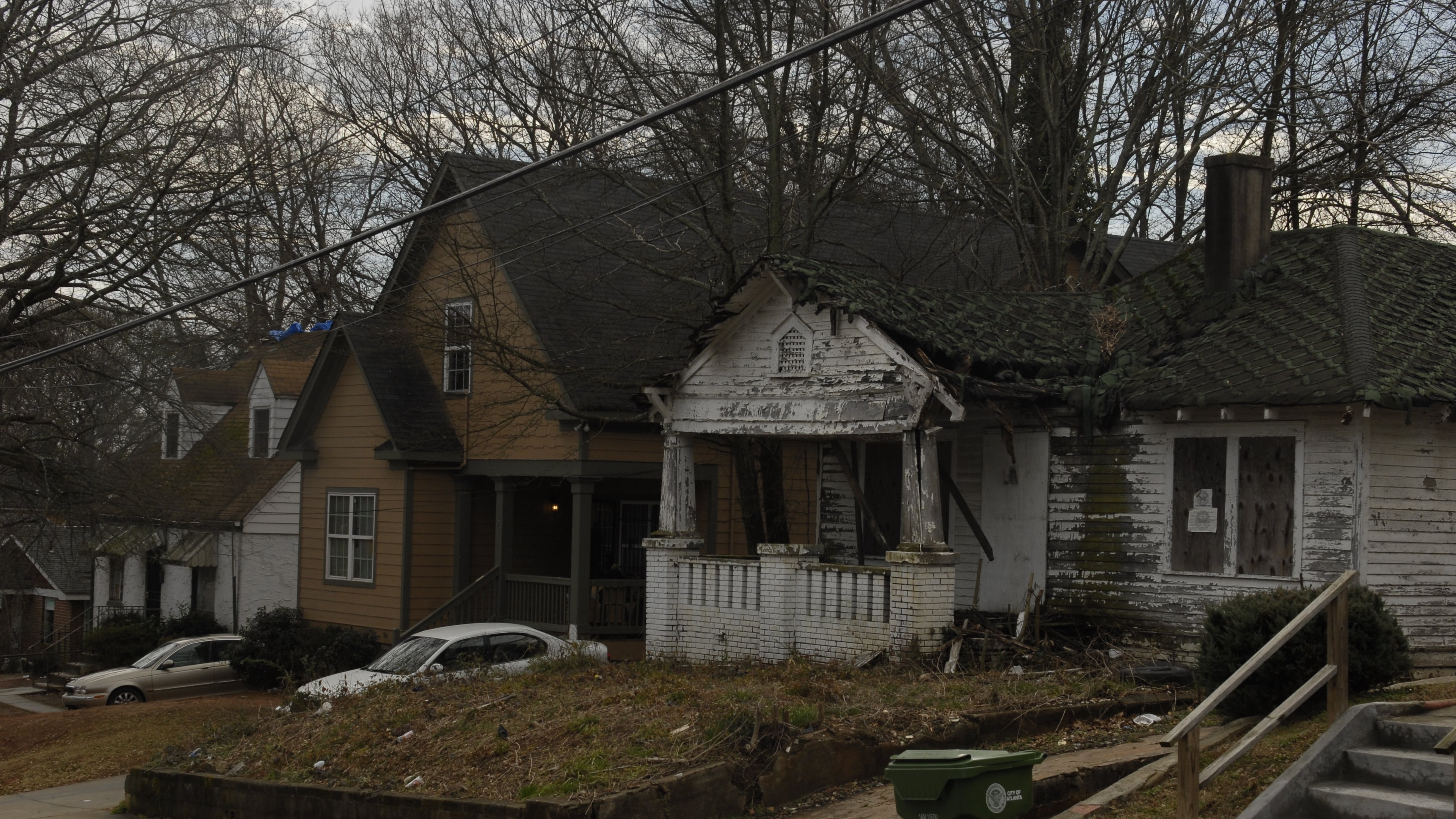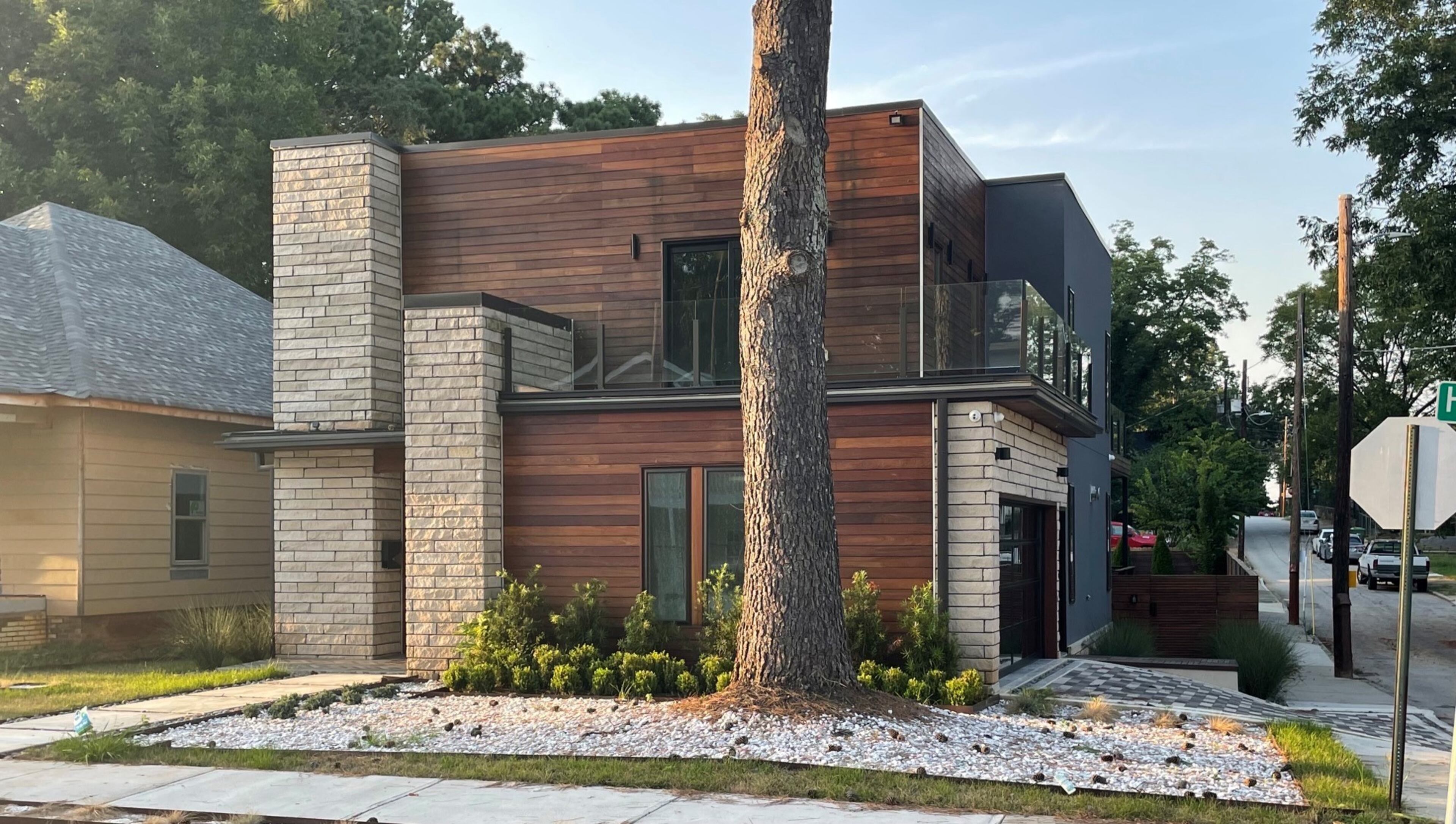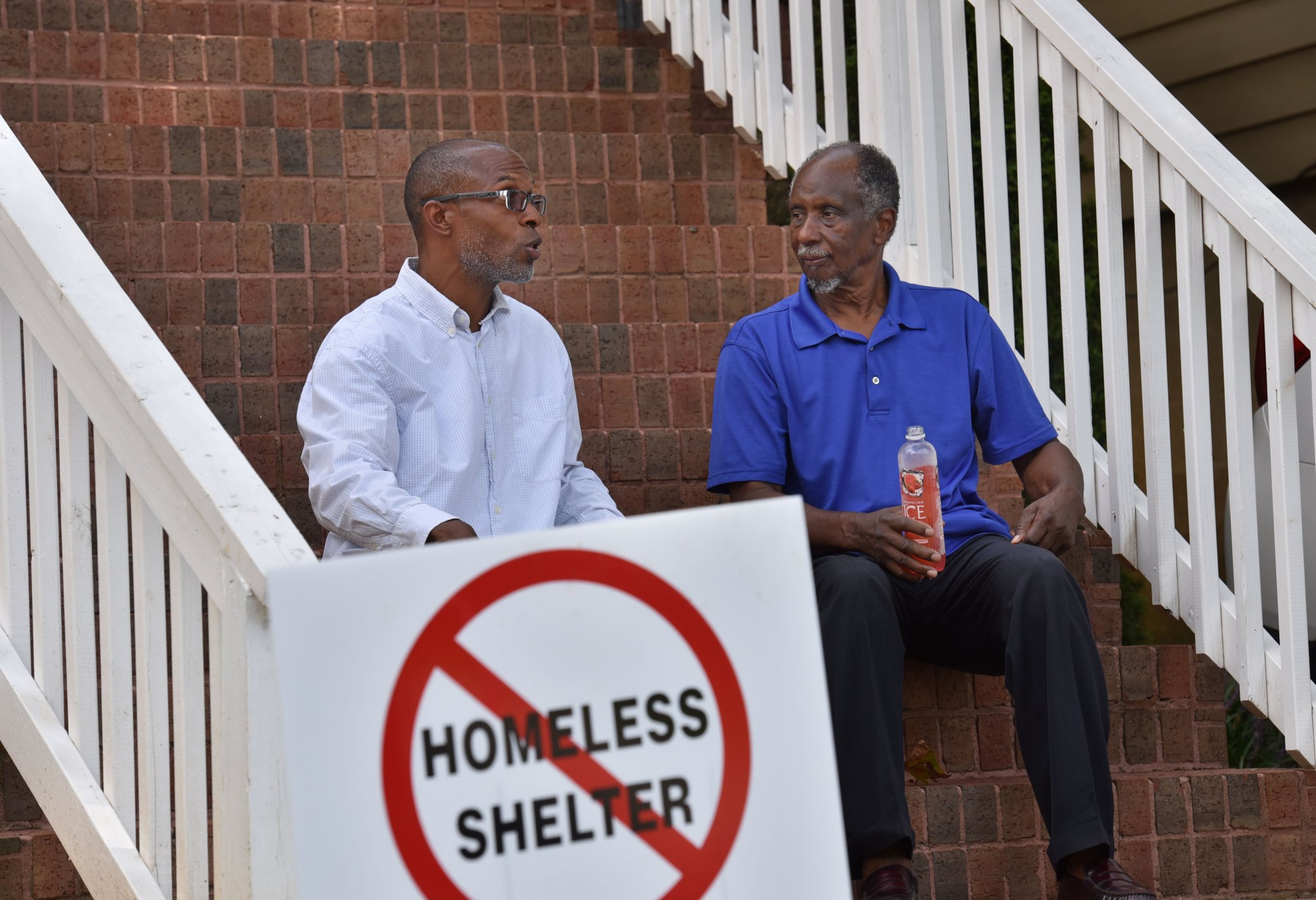OPINION | Atlanta’s Pittsburgh community: Is green truly the new Black?

The streets of Pittsburgh have changed greatly since 2014, when I profiled the neighborhood as having maybe the most dangerous corner in the city.
It was the corner of 1029 McDaniel Street, site of the notorious — and now defunct — “Pink Store.” At the time, there were competing memorials outside for two separate and recent murders: One a drive-by shooting, the other a suspected gang-related execution by AK-47.
I walked the adjoining two blocks and found that only six of the 24 homes along that stretch were occupied. In fact, a neighbor stopped me because I looked fishy, a white guy wandering around knocking on doors and peering in windows of abandoned homes.
Pittsburgh, I noted then, was “a confluence of societal ills: poverty, low education, unemployment, crime and a tidal wave of foreclosures during the recent Great Recession.” It was a place where the average home value plunged from $85,000 in 2006 to $13,000 in 2012.
The owners of the Pink Store were bailing and trying to find a sucker with an ad that read, “Amazing Beltline Business Opportunity. Convenient Store on busy street, community centered, and walkable to The Atlanta Beltline Project.” The idea that the Beltline could save this troubled patch of ground seemed at the time overly optimistic. Maybe even preposterous.
I bring this up because Pittsburgh is now a neighborhood on the rise, a community that this Saturday will celebrate the opening of the first phase of Pittsburgh Yards, the new development on 31 acres near the Beltline that is not, for once, made up of high-priced live/work/play habitats for millennials.
The aim of the effort, spurred by the nonprofit Annie E. Casey Foundation, along with various tax sources, will become sort of an incubator for small businesses, as well as an outlet to give small retailers a boost.
On a visit to Pittsburgh this week, I counted 16 homes along McDaniel Street that were occupied and five that were not. Many of the lived-in abodes have undergone extensive renovation or been completely knocked down and rebuilt. (There’s a discrepancy in the numbers from 2014 because some of the then-abandoned homes are now empty lots.)
During this latest visit, I found new houses and redeveloped homes on nearly every block. It’s an area that saw the sale of a home recently for $716,000, an event so striking that it brought out a local TV crew this summer using it as its centerpiece for a discussion about gentrification.

That modernistic home is on the aptly named Hope Street, and a few large edifices are being built near it. A neighbor in a small but tidy home across the street has a “Stop Gentrification” sign out front. I knocked on her door but she declined to talk. She said her thoughts on the subject were mischaracterized by the TV crew, which shocked me. (Not.)
The fellow living in the swanky new home is a young Black man who runs a successful clothing line. He was on the phone when I came by and said we’d talk later. We never did. I can understand his reluctance. Getting involved in these messy debates about gentrification is a no-win prospect, especially for a young, aspiring businessperson.
It’s not a racial thing, it’s more complicated. It’s political and economic and emotional.
William Murray, who owns a funeral home on McDaniel Street, noted that a house on the street behind his business sold for $510,000 — remember, this is an area where houses sold for $13,000 a decade ago. He said it was constructed by an African American builder and purchased by a white woman.
“People are now confident enough to walk their dogs and ride their bicycles,” he said. And also confident enough to buy pricey homes, the ultimate investment in the future.
Murray, who is Black, said the neighborhood is drawing people of all races. During my own travels, more often than not, the owners of newly renovated homes were Black. “People want to pivot on Black and white. It grabs attention,” Murray said, adding, “It’s Blacks, whites, Indians and Asians who are moving here.”
Devon Holloway, an engineer who is Black, moved to the neighborhood in 2016 and has been largely heartened by what he has witnessed. He says crime has dropped in the community and the in-your-face gang-banger stuff is a lot less frequent. However, there are constant issues like dumping, apathetic residents and LLCs that buy houses and sit on them, leaving them vacant until the time the owners can score big.

It certainly seems like that time has arrived.
But violent crime has by no means disappeared. When I met Holloway in 2016, we also spoke with a man named Greg who was renovating houses in the area and had sold Holloway his home. However, Greg got shot in Pittsburgh a couple of years ago, according to several people. He is still selling homes but his phone is turned off.
Tone Lane is a white teacher who bought a home in 2006, right before the bust, and has until recently been underwater in his mortgage. He has been involved in neighborhood concerns with Holloway and says Pittsburgh is like the “Twilight Zone,” a community that won’t change because of intractable political forces.
“It was divisive pockets of people gouging at each other,” he said, including him. That, coupled with ineffective city code inspections and other municipal services, kept the neighborhood blighted and unwanted. He calls it a self-induced “stagnification.”
“The changes that are coming are coming through individuals and small groups of investors,” he said. “The community is changing through the merits of real estate, certainly not by the efforts of elected officials, or the mayor or the NPU (neighborhood planning unit). People who are abiding in Pittsburgh want to be law abiding, want their streets cleaned.”
I said to him that people who are poor and don’t have an education or political know-how are frequently on the fringes of such debates and often pushed out. He responded that the Annie E. Casey Foundation has for years offered to sell or rent homes to residents cheaply.
“You need to push for yourself and get up every morning and do the best you can,” Lane said.
Chloe Floyd, who runs Pyramid Grocery at the Floyd Plaza on McDaniel Street, is doing exactly that. Her family has owned the property since the 1990s and she has grown up in Pittsburgh. Floyd’s inventory is sparse but she has a steady stream of customers picking up two and three items at a time. A few came in looking for her nightly nachos, which weren’t quite done.
“We’re like Cheers here,” she said of her grocery, referring to the TV tavern where everybody knows your name. She said she is lining up the business for her 18-year-old son and sees a better future for her community.

Floyd, who is Black, has bet big on the neighborhood and owns buildings on three of the corners where her grocery sits. (Hence the name “Pyramid.”) One has several small businesses renting there: A barber, a body butter shop, a smoke shop and a “pop-up” business.
When I spoke with Floyd in 2018, she mistook me for an investor.
“They come in with offers that are an insult,” she said at the time. “They are either used to people being desperate or ignorant. I’m not either.”
On this visit, as I walked away she shouted to me, saying, “Hey! Still not selling!” Then she laughed and headed back into the store to tend to her nachos.



